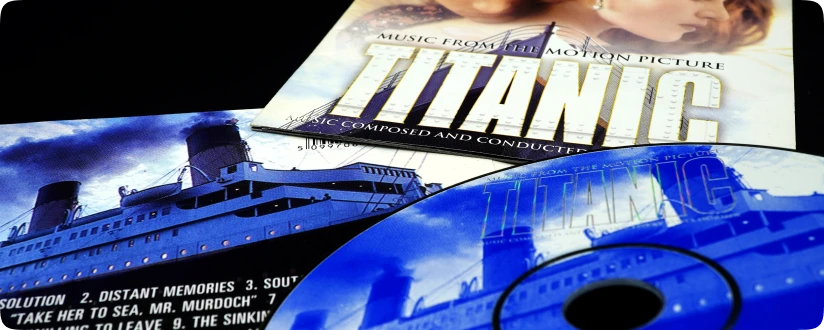Go back
Iconic Movie Soundtracks & Their Cultural Impact

Every great film is always accompanied by an equally iconic soundtrack— a music score that you find yourself singing long after the film is over. Whenever you hear the soundtrack, it has the power to take you right back to the film story.
How does that happen? How are some film soundtracks especially good?
Let’s take a closer look at some of Hollywood’s iconic soundtracks and understand what it is that makes them so perfect for their respective films.
Pulp Fiction (1994)
It's no secret that Quentin Tarantino is a genius at manipulating music. Quentin discussed the music scoring process in the booklet that came with his soundtrack collection, "The Tarantino Connection":
“I go through my record collection and just start playing songs, trying to find the personality of the movie, find the spirit of the movie . . . then, ‘boom,’ eventually I’ll hit one, two, or three songs, or one song in particular, ‘Oh, this will be a great opening credit song.’
In the opening credits of Pulp Fiction, we witness this process coming to life, with a radio station “fuzz effect” that switches from Dick Dale’s 1962 cover “Misirlou”’s energetic guitar riff into Kool & the Gang’s “Jungle Boogie”. It’s almost as if Tarantino were listening himself. The soundtrack foreshadows what’s to come with the film’s scrapbookish nature that jumps from one narrative to the other.
Guardians of the Galaxy Vol 1 (2014)
Large production companies like Marvel and Disney frequently collaborate with well-known performers like Rihanna, Kendrick Lamar, Beyonce, and Lady Gaga to produce and compose their own original film soundtracks. Wakanda Forever, A Star is Born, and Black Panther are excellent illustrations of this. Director James Gunn made the wise decision to employ pre-existing tunes in the first Guardians.
We are given a peek of Peter Quill's (Star-Lord) identity and the significance of the playlist using diegetic editing, which allows us to hear what he hears when he hits the play button on the vintage Walkman. Because it's the playlist his mother made for him and it helps Peter feel closer to her, Star-Lord only listens to power pop from the 1970s. As the sole human in a very sci-fi movie, the Guardians of the Galaxy soundtrack kept viewers grounded by reminding them that, even though the new alien creatures were being introduced into Marvel's universe for the first time, the story was still about humans.
The Breakfast Club (1985)
The Breakfast Club, a beloved high school movie from the 1980s, is frequently cited as having influenced a number of subsequent teen films. A big part of the movie’s success can be attributed to its brilliant soundtrack; the song choices were really reflective of the culture of the time.
“Don’t You (Forget About Me)” by Simple Minds was, undoubtedly, the standout hit. In addition to being a huge hit in the movie, this song was also among the most popular songs of the decade—quite an accomplishment given that it was the 1980s.
The track booms over the opening credits and the ending scenes, a soundtrack that perfectly captures the feel of the film and its time. It was a glimpse into what growing up as a teenager in '80s America was like and evokes strong nostalgia for viewers to this day.
The Graduate (1967)
One of the earliest films to use its soundtrack so effectively, The Graduate’s Director Mike Nichols played with the music of New York folk-rock duo Simon & Garfunkel. He used their tracks to underscore the emotional tone of many scenes throughout the film.
In the film’s opening title sequence, “Sound of Silence” gives us a sense of how Benjamin, the protagonist, is drifting on a conveyor belt, without a sense of purpose. The melancholy song encapsulates his feeling of dejection so well.